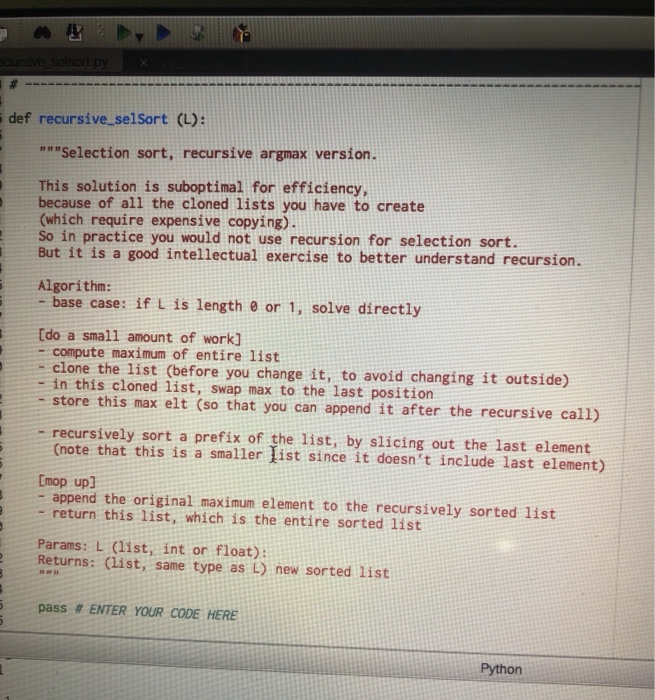Answered step by step
Verified Expert Solution
Question
1 Approved Answer
Using python 3.5 def recursive_selSort (L): Selection sort, recursive argmax version. This solution is suboptinal for efficiency, because of all the cloned lists you have
Using python 3.5 
def recursive_selSort (L): ""Selection sort, recursive argmax version. This solution is suboptinal for efficiency, because of all the cloned lists you have to create (which require expensive copying). So in practice you would not use recursion for selection sort. But it is a good intellectual exercise to better understand recursion. Algorithm: - base case: if L is length 0 or 1, solve directly [do a smal1 amount of work] - compute maximum of entire list clone the list (before you change it, to avoid changing it outside) - in this cloned list, swap max to the last position - store this max elt (so that you can append it after the recursive call) - recursively sort a prefix of the list, by slicing out the last element Cnote that this is a smaller list since it doesn't include last element) mop up] - append the original maximum element to the recursively sorted list - return this list, which is the entire sorted list Params: L (list, int or float): Returns: (list, same type as L) new sorted list pass # ENTER YOUR CODE HERE Python 
Step by Step Solution
There are 3 Steps involved in it
Step: 1

Get Instant Access to Expert-Tailored Solutions
See step-by-step solutions with expert insights and AI powered tools for academic success
Step: 2

Step: 3

Ace Your Homework with AI
Get the answers you need in no time with our AI-driven, step-by-step assistance
Get Started


